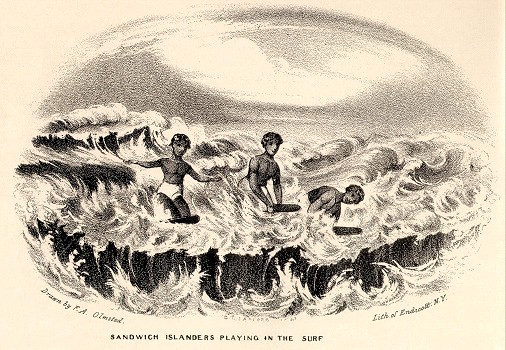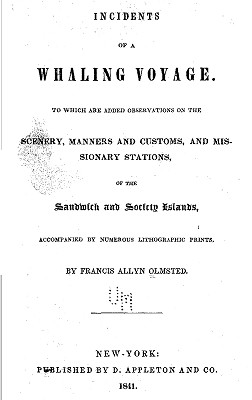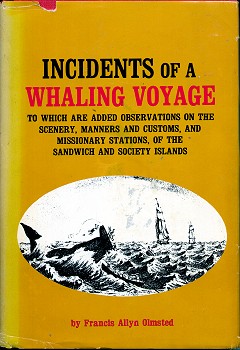
francis olmsted : surf riding on hawaii, 1841
| home | catalogue | history | references | appendix |
 |
surfresearch.com.au
francis olmsted : surf riding on hawaii, 1841 |
Internet Archive
http://archive.org/details/afk7034.0001.001.umich.edu
In the 1890s, John R. Musick reported that surf riding was still popular, at least by the local school children, at Kailua.
See Source Documents:
1898 John R.
Musick : Surfing in Hawai'i.
Kailua Beach, Hawaii,
is reported to be the favorite beach of U.S. President, Barack Obama.
The pictorial
illustrations are selections from fifty or sixty sketches representing
objects of natural history, and scenes that interested me, taken originally
in the sketch book I always carried with me, and finished off afterwards,
as soon as possible.
The great
expense of these illustrations, forbids the introduction of a larger number
into the work ; for the size of a work gives it a determinate price, from
which even the most expensive illustrations will not admit of very great
deviation, although embellishments of this kind are often as essential
in forming a correct idea of a scene, as the printed page itself.
Frequently indeed,
they are of greater importance ; for a single glance at a correct picture
gives a far more vivid idea of a scene, than the most elaborate description.
[-New-Haven,
August, 1841.]
Page 217
This morning I
arrived at Honolulu after an absence of about two weeks in an excursion
to the island of Hawaii.
Our party, consisting
of two gentlemen of distinguished attainments, and myself, embarked in
the "Clementine," a vessel owned here, on Tuesday morning, June 23d, where
we were joined by a Mr. Grimes, a resident of Honolulu.
Page 218
After a passage
of more than three days, during which we barely escaped being roasted by
the intense heat of the sun, in a calm off the island Ranai, we cast anchor
off Kailua, a little town upon the western coast of Hawaii.
Here is the residence
of Kuakini, or John Adams, Governor of Hawaii, one of the highest
chiefs of the nation, and distin-
Page 219
guished in the
history of these islands for the favor he has always manifested towards
the missionaries.
Kailua is built
close upon the beach, and has a very pretty appearance with its cocoa-nut
trees waving over the Governor's
house, and a
few koa trees scattered here and there.
From the water's
edge, the ground rises with a rapid ascent until it is lost to the eye
in the clouds.
Upon landing,
we were received by Dr. Andrews, Physician to the missionary station at
Kailua, who conducted us to his house, where we were cordially welcomed
by Mrs. Andrews, and entertained with hospitality during our visit.
After supper,
we called upon Governor Adams.
His house, which
is one of the finest upon the islands, is situated close upon the beach,
so that the rear of the yard is washed by the ever rolling billows of the
ocean.
Page 222
After witnessing
this striking instance of the zeal of Governor Kuakini for scientific objects,
I took a stroll down to the sea shore, where a party of natives were playing
in the surf, which was thundering upon the beach.
Each of them
had a surf boards a smooth, flat board from six to eight feet long, by
twelve to fifteen inches ...
Facing Page 223

Page 223
... broad.
Upon these, they
plunged forward into the surf, diving under a roller as it broke in foam
over them, until they arrived where the rollers were formed, a quarter
of a mile from shore perhaps, when watching a favorable opportunity, they
rose upon some huge breaker and balancing themselves, either by kneeling
upon their boards or extending themselves full length, they dashed impetuously
towards the shore, guiding themselves with admirable skill and apparent
unconsciousness of danger, in their lightning-like courses, while the bursting
combers broke upon each side of them, with a deafening noise.
In this way,
they amuse themselves hour after hour, in sports which have too terrific
an aspect for a foreigner to attempt, but which are admirably adapted to
the almost amphibious character of the natives.
Page 271
Page272
... that hang
like wreaths around their summits ; while down their sides a bright red
clay contrasts strangely with the deep green verdure of the ravines.
From the gracefully
winding shore, long low points of land are seen running out into the sea,
covered with a dense array of cocoa-nut groves, whose tall, branchless
trunks, and canopies of broad leaves, present a novel and interesting appearance.
At irregular
distances from the shore, a coral reef extends itself, upon which the sea
bursts, and encircles the islands with a snow-white fringe.
In many places,
the reef is connected immediately with the shore, but it is generally constructed
at some distance, parallel to it, forming in some instances, safe anchorage
for ships in the placid lagoons that lie betw-een the reef and the shore.
It is a singular
fact, that wherever fresh water streams run into the sea, there are openings
in the reef abreast of them ; for the fresh water appears to have neutralized
the labors of the animalculae, to which these reefs are supposed
to owe their origin.
Upon this principle,
Papeete harbor was formed.
Across a deep
recess, in the island, extends the reef, which, far to the right, is interrupted,
thus giving passage into the harbor while the surf bursts in one continued
roar upon the immovable barrier upon each side.
A ship in coming
to anchor, runs into the passage, then beats up to her desired anchorage
— for the wind is almost always from one quarter, that is, ahead.
A noble sheet
of water spreads out before you, a mile in length perhaps, and a half mile
wide.
On the left hand
side, a small island of circular shape is a beautiful feature in the scenery
of the bay, the shores of which, down to the beach are crowned with luxuriant
groves, while a narrow point of land running out towards the reef, and
set thickly with cocoa-nut trees, gives variety to the view in that direction.
Around ...
Page 273
... this point,
between the reef and the shore, there is a safe passage for ships up to
Point Yenus, celebrated in the voyages of Capt. Cook, as the place from
which the transit of Venus was observed — whence its name.
Papeete Bay is
one of the finest in the world, and is far superior to Honoulu Harbor,
in natural qualities.
The hoarse surges
that beat upon the reef without, are lulled to rest in its tranquil waters
where
"
The glassy ocean hushed forgets to roar.
But
trembling murmurs on the sandy shore.''
Protected from
the winds by the lofty mountain peaks, and embosomed in verdure of the
densest luxuriance of the tropics, Papeete Bay exceeds in beauty, any sheet
of water I have ever seen.
It is so capacious,
that a fleet of a hundred sail of ships might lie at anchor without incommoding
one another, and its depth of water is such that large vessels are moored
within a stone's throw of the shore.
 |
Incidents of a Whaling Voyage. To which are added observations on the scenery, manners and customs, and missionary stations, of the Sandwich and Society Islands. Appleton and Co., New York, 1841. Internet Archive
|
 |
Incidents of a Whaling Voyage. To which are added observations on the scenery, manners and customs, and missionary stations, of the Sandwich and Society Islands. New edition with preface by W. Storrs Lee. Bell Publishing Company, New York, 1969. |

| home | catalogue | history | references | appendix |